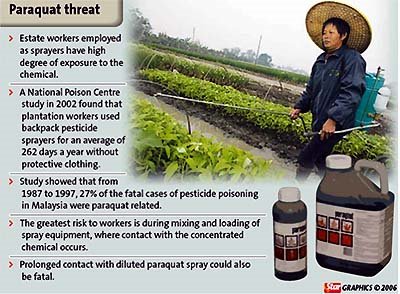PUTRAJAYA: Love is fine but he was a doctor and his lover was his patient.
He forgot his professional code of ethics in the heat of the moment earlier this year and will pay dearly for it.
The 44-year-old will not be able to practise for the next two years for breach of ethics.
The Malaysian Medical Council (MMC) found him guilty of the offence after an enquiry where he admitted the liaison.
In doing so, he also admitted abusing professional privilege and acting in a manner derogatory to the profession.
The MMC found that the doctor’s behaviour had resulted in disruption in the lives of the patient’s family besides distress to them.
The doctor has appealed to the High Court.
He is one of 18 registered medical practitioners suspended since 2003 after being found guilty of ethical offences.
Director-general of Health Tan Sri Dr Ismail Merican, who is also MMC president, told the New Straits Times that 15 doctors had received reprimands.
Between January 2004 and August this year, the five Preliminary Investigation Committees (PIC) in MMC investigated 344 cases, with 181 yet to be resolved.
At council level, 45 cases had been acted upon while 18 cases were pending.
Other instances of a breach of ethics included:
• A 47-year-old doctor at a clinic in Johor being suspended for two years after being convicted for offences under the Poisons Act and fined varying amounts or imprisonment in default.
• A 34-year-old doctor running a private clinic in Taman Sri Manja, Petaling Jaya, who was suspended for six months after being found guilty of circulating leaflets entitled Kempen Percuma announcing free services at her clinic.
• A 58-year-old doctor with a maternity home in Johor being reprimanded for forging the signature of another person on a loan document.
He was charged in Sibu, Sarawak, and on appeal was sentenced to a day’s jail and fined RM10,000 in default four months jail.
The MMC also decided in its meeting yesterday that it would publish the names of errant doctors even if they had appealed to the High Court.
Previously, it did so only if an appeal had not been lodged or if an appeal had been overturned.
Of the 15,797 practising medical practitioners, less than one per cent are engaged in unethical practices.
Dr Ismail said the council could not take action on occasions against doctors as some complainants did not want to appear before an enquiry, information given was inadequate or the complainant could not be contacted.
He forgot his professional code of ethics in the heat of the moment earlier this year and will pay dearly for it.
The 44-year-old will not be able to practise for the next two years for breach of ethics.
The Malaysian Medical Council (MMC) found him guilty of the offence after an enquiry where he admitted the liaison.
In doing so, he also admitted abusing professional privilege and acting in a manner derogatory to the profession.
The MMC found that the doctor’s behaviour had resulted in disruption in the lives of the patient’s family besides distress to them.
The doctor has appealed to the High Court.
He is one of 18 registered medical practitioners suspended since 2003 after being found guilty of ethical offences.
Director-general of Health Tan Sri Dr Ismail Merican, who is also MMC president, told the New Straits Times that 15 doctors had received reprimands.
Between January 2004 and August this year, the five Preliminary Investigation Committees (PIC) in MMC investigated 344 cases, with 181 yet to be resolved.
At council level, 45 cases had been acted upon while 18 cases were pending.
Other instances of a breach of ethics included:
• A 47-year-old doctor at a clinic in Johor being suspended for two years after being convicted for offences under the Poisons Act and fined varying amounts or imprisonment in default.
• A 34-year-old doctor running a private clinic in Taman Sri Manja, Petaling Jaya, who was suspended for six months after being found guilty of circulating leaflets entitled Kempen Percuma announcing free services at her clinic.
• A 58-year-old doctor with a maternity home in Johor being reprimanded for forging the signature of another person on a loan document.
He was charged in Sibu, Sarawak, and on appeal was sentenced to a day’s jail and fined RM10,000 in default four months jail.
The MMC also decided in its meeting yesterday that it would publish the names of errant doctors even if they had appealed to the High Court.
Previously, it did so only if an appeal had not been lodged or if an appeal had been overturned.
Of the 15,797 practising medical practitioners, less than one per cent are engaged in unethical practices.
Dr Ismail said the council could not take action on occasions against doctors as some complainants did not want to appear before an enquiry, information given was inadequate or the complainant could not be contacted.

